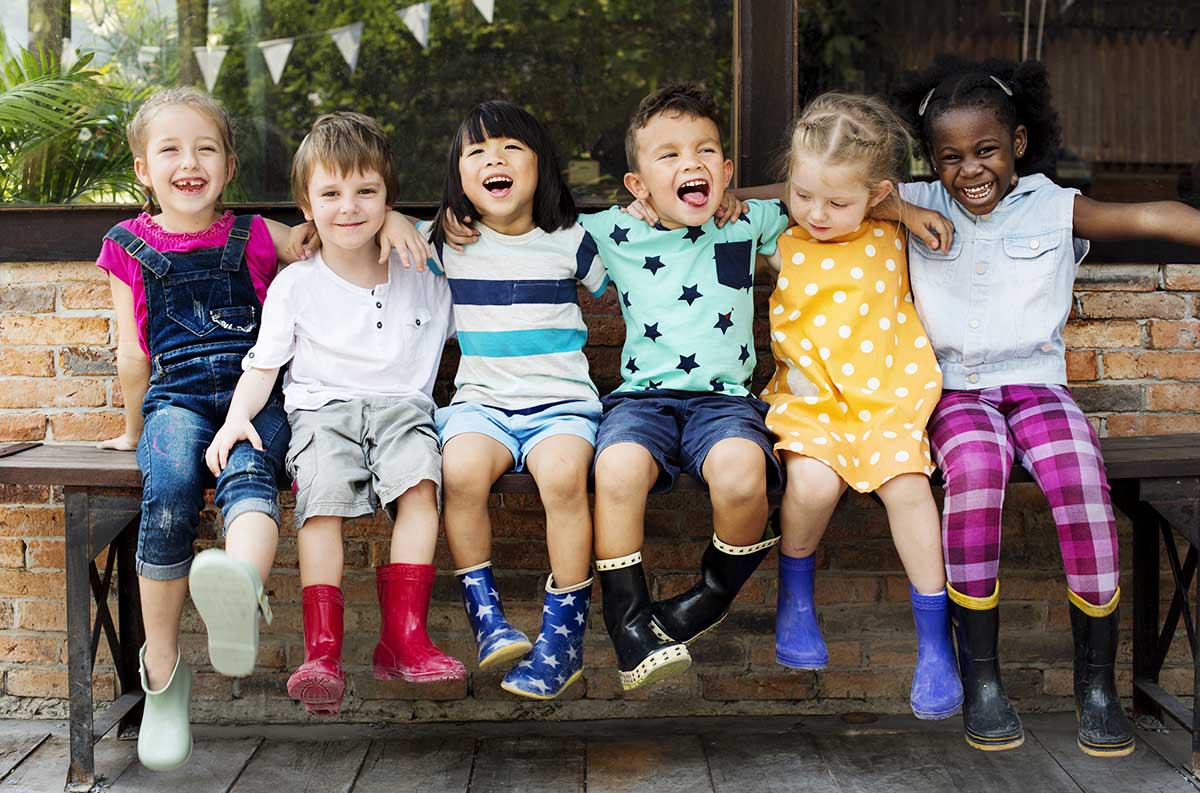Anti-bias education:
What's it all about?

ACCORDING TO Louise Derman-Sparks and Julie Olsen Edwards, the authors of Anti-Bias Education for Young Children and Ourselves, “Anti-bias education is an optimistic commitment to supporting children who live in a highly diverse and yet still inequitable world. Rather than a formula for a particular curriculum, it is an underpinning perspective and framework that permeates everything in early childhood education—including your interactions with children, families and colleagues.”
What are the four core goals of anti-bias education, and how do they apply to LGBTQ+ social justice?
Goal 1: IDENTITY
Teachers will nurture each child’s construction of knowledgeable and confident personal and social identities so that children will demonstrate self-awareness, confidence, family pride, and positive social identities.
Early childhood educators can work toward this goal by:
- Encouraging children to express positive feelings about their gender identity and become comfortable with their own way of expressing gender
- Creating opportunities for children of any gender to explore a wide range of opportunities, interests and activities
- Encouraging children to share openly about their families
Goal 2: DIVERSITY
Teachers will promote each child’s comfortable, empathetic interaction with people from diverse backgrounds so that children will express comfort and joy with human diversity, use accurate language for human differences, and form deep, caring connections across all dimensions of human diversity.
Early childhood educators can work toward this goal by:
- Teaching children about the diversity of people both within and across genders
- Celebrating the uniqueness and assets of diverse families
Goal 3: JUSTICE
Teachers will foster each child’s capacity to critically identify bias and nurture each child’s empathy for the hurt that bias causes so that children will increasingly recognize unfairness (injustice), have the vocabulary they need to describe unfairness, and understand that unfairness hurts.
Early childhood educators can work toward this goal by:
- Engaging in activities that help children recognize and challenge stereotypes
- Helping children understand the unfairness of identity-focused harm
- Questioning unfair depictions or erasure of LGBTQ+ families
Goal 4: ACTIVISM
Teachers will cultivate each child’s ability and confidence to stand up for oneself and for others in the face of bias so that children will demonstrate a sense of empowerment and the skills to act, with others or alone, against prejudice and/or discriminatory actions.
Early childhood educators can work toward this goal by:
- Empowering children to claim their identity and gender
- Modeling how to support others, regardless of their identities
- Teaching children how to resist rejection, teasing or bullying
Interested in learning more about anti-bias education? Check out the book, Anti-Bias Education for Young Children and Ourselves, by Louise Derman-Sparks and Julie Olsen Edwards (Second edition, 2020)